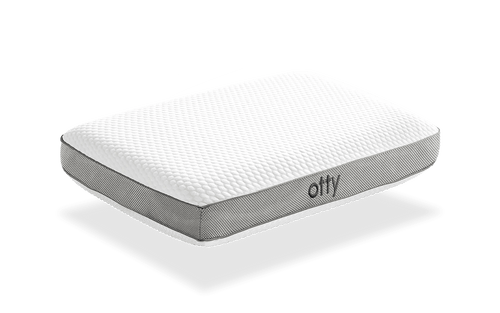Want to chat? Call us 01133 202 490
Struggling To Sleep? - Sleep Problems Across The U.K.
Tossing and turning at 3 am is not an unfamiliar feeling for many people, but a good night’s sleep is essential for plenty of reasons. Across the UK sleepless people have all been turning to a familiar agony aunt, Google, to look for answers on why they can’t get to sleep.
We’ve analysed the top issues that many have been searching for across the UK. From nightmares to insomnia, our Sleep Issue Index debunks the data to find out the biggest sleep issues in the UK.
- Can't Get To Sleep? - 'The Great British Sleep-off'
Across the UK it seems as though we are all struggling to get a good night's sleep, but what are the biggest causes?
We’ve found the top nocturnal nightmares on Google and identified the cities struggling to get a good night's sleep.

The number one city which has seen the highest increase in searches for ‘sleep anxiety’ is Birmingham.
We’ve spoken to Counsellor Kerry Quigley accredited by the British Association for Counselling and Psychotherapy about the effects of sleep and anxiety.
“Over time, a poor sleep pattern can also contribute to mental health issues such as anxiety, depression, and insomnia.
Improving the quality and the amount you sleep can enhance every aspect of your life and overall well-being. It is an investment that builds upon emotional resilience and therefore your ability to cope with life stresses.
Sleep is critical for brain function and has a profound effect on cognition, mood, and alertness, therefore boosting motivation and learning.
A good night's sleep is the foundation that enables you to be fully present in your life.”
It’s a never-ending cycle of lack of sleep resulting in a decrease in your emotional resilience which could result in anxiety which can, in turn, be keeping you up at night. With sleep being one of the best forms of mental and physical recovery, it is only natural that sleep deprivation will cause mental distress.
But what is the ideal amount of sleep to achieve optimal brain function?
Londoners are very keen in finding this out as over the past 7 years there has been a 7300% increase in searches for ‘sleep amount’.
To finally find out what the perfect amount of sleep you need daily, we’ve spoken to Alex Dimitriu, MD, a double board-certified physician in psychiatry and sleep medicine and founder of Menlo Park Psychiatry & Sleep Medicine.
Dimitriu suggests “Seven to 8 hours of sleep is ideal for most people. We should aim to be realistic, and ideally create a "window" of time for sleep of 8 or 9 hours - with the realisation that despite our efforts, we all end up sleeping a little less than we planned.
Electronic devices are the most to blame, and as tempting as they are, ideally, they should not be in the bedroom.
Reading books has been tremendously helpful for many of my patients before bed, and meditation by day (and night) can truly help some insomniacs. I often say it is better to practice clearing the mind by day when it is not critical than in the middle of the night.“
- Lockdown, Why Am I Not Sleeping?
We are all familiar with a lockdown or two… or three.
Lockdown has affected most people not only with their everyday life but also their sleep!
As the world came to what felt like a standstill, it’s no surprise that Brits turned to Google to find a solution to their restless nights.
Back in April 2020, a survey by Populus found that 36% of respondents between the ages of 35 and 44 years, said they had been experiencing a drop in quality sleep than before lockdown.

Throughout the first lockdown, many people experienced sleeping problems, from sleep anxiety to insomnia. Comparing Google Trends search data from its peak during the UK’s first national lockdown vs the same date back in 2019, all 18 top sleep problems saw an increase in search interest.
Searches for ‘pregnancy sleep positions’ was the number one sleep issue during lockdown which has seen a staggering 8900% increase in searches on 3rd May 2020, compared to 3rd May 2019. Following ‘pregnancy sleep positions’ is ‘baby sleep pattern’ with an increase of 3600% in searches followed by ‘sleeping too much’ which only had an increase of 571% in searches.
Methodology
Taking a seed list from the most popular sleep complaints via Mumsnet and Reddit, OTTY analysed each search phrase by comparing search results from AHREFS and SEMRUSH to find the number of monthly searches across the UK. Using Google Trends OTTY has worked out the % increase between 2004 and 2021 for the regional sleep issues. The same methodology was used for Lockdown by comparing 2020 data with the year before.






